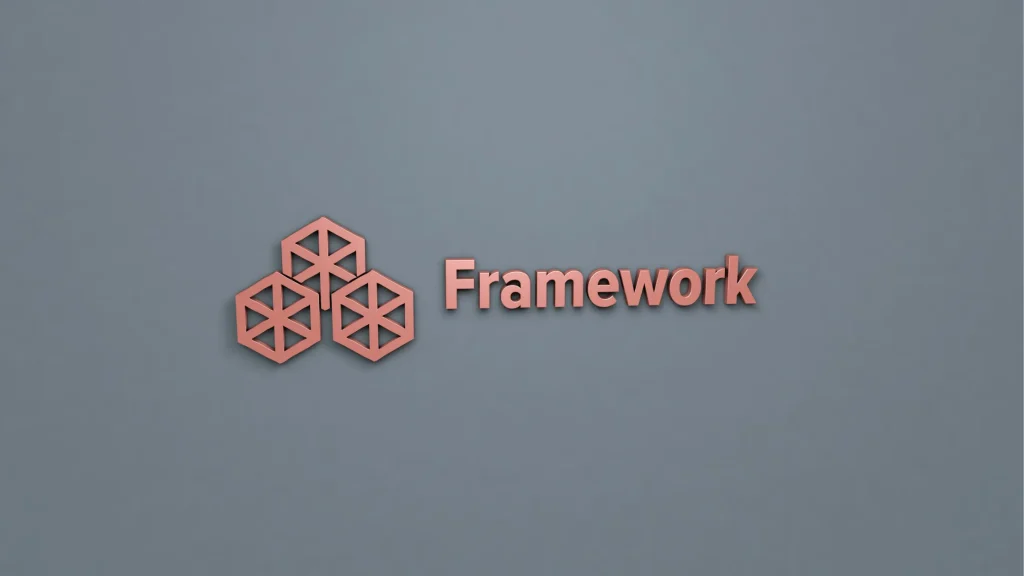In web development, the tools and frameworks a developer chooses can impact the efficiency, scalability, and success of a web app. In 2025, web development is changing. The best web frameworks provide quick development, clean designs, and user-friendly interfaces. With a wide range of options to choose from, it’s important to understand which framework will best suit your needs.
This article looks at the top web development frameworks of 2025. It covers both front-end and back-end options. We will also see how these frameworks make development easier.
Introduction to Website Development Frameworks
What is a Web Development Framework?
A web framework is a pre-written set of tools and libraries that help developers create web applications with fewer errors and faster development times. They give structure to development. This makes it easier to build, scale, and maintain applications. The primary benefit of using a web framework is that it automates repetitive tasks, which can drastically reduce development time and effort.
Importance of Choosing the Right Framework
The right web development framework greatly impacts performance, scalability, and integration with other systems. Choosing the right framework is key, whether you’re making a single-page app or a big web project. Frameworks also help streamline mobile development, provide web APIs, and make it easier to implement responsive web designs.
The Rise of Web Development in 2025

Trends Shaping the Web Development Landscape
Web development is growing in 2025. The trends are clear: faster web apps, more progressive solutions, and greater use of JavaScript frameworks. Web frameworks today help developers work faster.
They improve performance and make the user interface (UI) and user experience (UX) better. The demand for cross-platform development and web and mobile integration is high. This trend makes open-source web frameworks more popular among developers.
How Web Frameworks are Revolutionizing Development
In 2025, top web development frameworks help developers build web apps and APIs fast. They also emphasize clean design and scalability. Frameworks like Vue.js, React, and Angular help developers create web apps. These apps are fast, responsive, and great for mobile. By automating common tasks, these frameworks help speed up the development time and ensure high-quality results.
Best Front-End Development Frameworks of 2025
React: The Most Popular Front-End Framework
React is one of the most popular frameworks for front-end development. This JavaScript framework has revolutionized user interfaces and single-page applications. React provides an efficient way to create dynamic web apps that respond to user input instantly, making it the top web choice among developers.
Angular: Powerful for Scalable Web Applications
Angular is another front-end framework that excels in building large-scale, scalable web applications. Angular has features like two-way data binding and strong tools for web components. This gives developers a clear and modular way to design websites. It’s a popular choice among developers for creating enterprise-level applications.
Vue.js: Flexible and Developer-Friendly
For developers who want flexibility and simplicity, Vue.js development is the way to go. Vue.js is a progressive JavaScript framework that allows you to integrate it into existing projects with ease. Known for its clean design and ease of use, Vue.js offers a great solution for both small and large web projects.
Svelte: The Next-Gen Front-End Framework
Svelte is a newer front-end framework that offers a unique approach to web development. Unlike other frameworks, Svelte compiles the app code at build time rather than running it in the browser. This results in lighter web apps and faster performance, making it an exciting addition to the frameworks for web development space.
Best Back-End Development Frameworks of 2025

Node.js: JavaScript for the Backend
Node.js is a back-end framework written in JavaScript, allowing developers to use the same language for both the front-end and back-end. This open-source web framework is very fast. It’s a great choice for real-time apps, such as chat apps or online games.
Django: The Complete Web Framework
Django is a web framework written in Python that’s widely known for being easy to integrate with other systems. It comes with a built-in admin interface and features that make it great for rapid web application development. Django is perfect for projects that need to handle large amounts of data and traffic efficiently.
Ruby on Rails: A Developer’s Favorite
Ruby on Rails is a popular framework for building web applications quickly and with a clean structure. It stresses convention instead of configuration. This helps developers focus on business logic and avoid repetitive tasks. Ruby on Rails is known for its speed and efficiency, especially in the development of scalable web applications.
Laravel: Elegant PHP Framework
Laravel is a PHP framework that offers elegant syntax and a robust set of tools for building web apps and APIs. It’s designed to make common tasks like authentication, routing, and database management easier for developers. Laravel is a great option for anyone seeking a user-friendly web framework. It has a strong community of contributors.
Top Full-Stack Web Development Frameworks

Next.js: A Full-Stack Framework for React
Next.js is a full-stack framework for React that enables developers to build both front-end and back-end of web applications. It’s perfect for developers who want to use React. They also need server-side rendering and API routes to build a full-stack web app.
Nuxt.js: Full-Stack Framework for Vue.js
Nuxt.js gives Vue.js users full-stack development options. It features server-side rendering and automatic code splitting. Nuxt.js helps you quickly build both static and dynamic web apps. It is especially great for improving performance on mobile devices.
Meteor.js: Real-Time Full-Stack Framework
Meteor.js is a full-stack framework that focuses on building real-time web applications. It integrates seamlessly with MongoDB and Node.js, enabling developers to create scalable web applications with minimal effort. It’s an ideal choice for app development that requires instant updates or live features like chat rooms or notifications.
Factors to Consider When Choosing the Best Web Framework
Performance and Scalability
When choosing the best framework for your project, it’s essential to consider its performance and ability to scale. Scalable web frameworks allow you to handle growing amounts of data and users without sacrificing performance.
Community Support and Documentation
A framework with strong community support and solid documentation can make the development process much easier. Popular frameworks such as React, Vue.js, and Node.js have big developer communities. They also offer many resources for learning.
Learning Curve and Ease of Use
Different frameworks for web development come with varying degrees of complexity. For beginners, frameworks like Vue.js or Ruby on Rails may be easier to learn, while Angular or Django may require more in-depth knowledge.
Compatibility with Other Technologies
Ensure the framework you choose is compatible with other technologies you plan to use, whether it’s databases, web services, or mobile apps. Some frameworks, like Laravel and Node.js, integrate well with web APIs and other backend systems.
Also Read: Affordable Web Development Agency: Unlock Your Dream Website
Choosing the Right Framework for Your Web Development Project
When it comes to web development, selecting the framework that best suits your project’s needs is essential. In 2025, there are countless options for both front-end and back-end development, each with its own set of features and advantages. The best web frameworks can simplify your workflow, boost performance, and create a user-friendly experience.
Whether you’re building a scalable web app or a mobile app, they are essential. Knowing the strengths of various web frameworks helps you pick the best one. This choice should match your goals and offer an efficient solution for your development projects.
